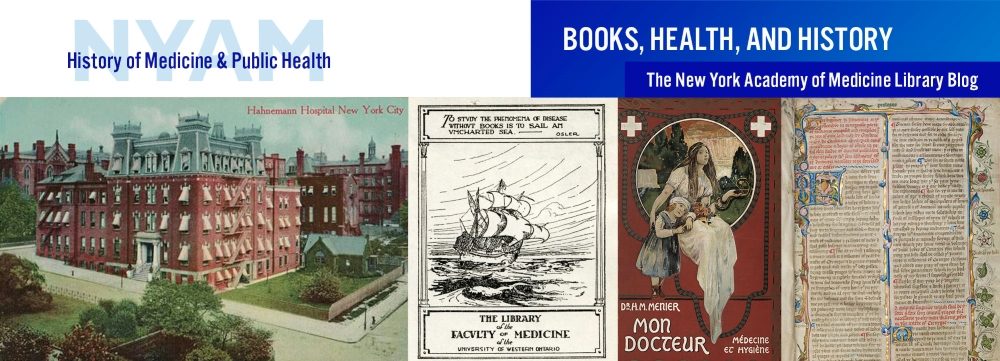By Johanna Goldberg, Information Services Librarian
To celebrate National Poetry Month, we are sharing a poem from our collection each week during April.
In 1817, the work of two fathers of phrenology, Franz Joseph Gall and Johann Gaspar Spurzheim, inspired poetry.

A figure from The Physiognomical System of Gall and Spurzheim
As explained by authors Francis Jeffrey and John Gordon in the preface of The Craniad: Or, Spurzheim Illustrated. A Poem in Two Parts:
“It is not our intention to conduct our readers through all the delightful mazes of the Craniologic paradise. We shall give them a bird’s-eye view of this garden of intellectual sweets; but should they feel disposed to examine every object minutely, they can leave the point of view which we have chosen for them, descend, and lose themselves, at leisure, in the charming confusion of the romantic labyrinth.”
Here is an excerpt from this “bird’s-eye view,” emphasizing the view of the poets (and their inspiration) that the shape of our heads and brains determine our futures—our criminality, careers, and guilt or innocence in a court of law.
Why do men fight,—and steal,—and cheat,—and
lie,—
String crime on crime, till strung on ropes they die?
“ Because within and on their skulls are found,
“ First known to Gall’s and Spurzheim’s tact pro-
found,
“ Organs, which mark the cause with obvious case,
“ Nature is sick, and crime is her disease.”
. . .
To one thing more than others, not inclined—
Some think that education forms the mind.
Hence view we talents every day misplaced ;
Great public situations, too, disgraced !Hnce [sic] have we preachers in our courts of law,
And lawyers in the pulpit—that’s a flaw.
We’ve some physicians who should nurses be,
And tend on those from whom they take a fee.
We’ve barbarous bungling surgeons, now and then,
Fit only to be barbers’ journeymen ;
Poor paltry puling poets,–who, Lord knows,
Should try to learn to write some decent prose.
Horse-jockies sometimes sit in Parliament !
On jockeying there, by dangerous habits bent,
Whilst many a genius lives by grinding knives,
And many a dunce without a genius thrives.
. . .
When Barristers learn Craniology,
Closer examinations we shall see ;
They then can make each witness shew his skull,
To see if ‘twill his evidence annul,
And if there’s evidence that this is so,
They’ll render it more evident, we know.
And poor unhappy criminals may then
Get leave to feel the skulls of jury-men ;
And when a man’s indicted for a rape,
His neck may then be saved by its own shape.
. . .
Behold a new employment for the blind,
With sense of tact so wondrously refined.
Let them be Craniologers, have schools,
In which succeeding blind may learn their rules ;
Let them have rank and titles with the great,
Be called, “ Prime Craniologers of state.”
Such intellectual feelers, of the land,
Would form a useful, and important band ;
They could correct all errors in our courts,
And wavering doubts decide by their reports.”

Always enjoy your posts!
Enjoyed the poem and the sketches of bumps (which one can scarcely see beneath the curls)!
Years ago (in 1956 – ’57), while studying at the Sorbonne in a Junior Year in France program, I took a class in ‘History and Philosophy of Science.’ In fact, the professor focused entirely on concepts concerning the nervous system in the 19th century, with the central figure being Joseph Gall and his phrenology. This was no doubt the professor’s subject of specialization, although I don’t believe he had written a book on it–otherwise we would have been expected to read it. I’m sure I still have my notes somewhere; the lectures (and my notes) were in French. I don’t remember much information from the class except that Gall was the father of phrenology. I don’t even remember Spurzheim as a collaborator. This post brought back personal memories of that classroom and the rather pompous person who held forth at the front of just a handful of students.
Absolutely fascinating. I love the way they came up with a practical solution to judicial difficulties at the end. Thank you, and thank you for the likes.